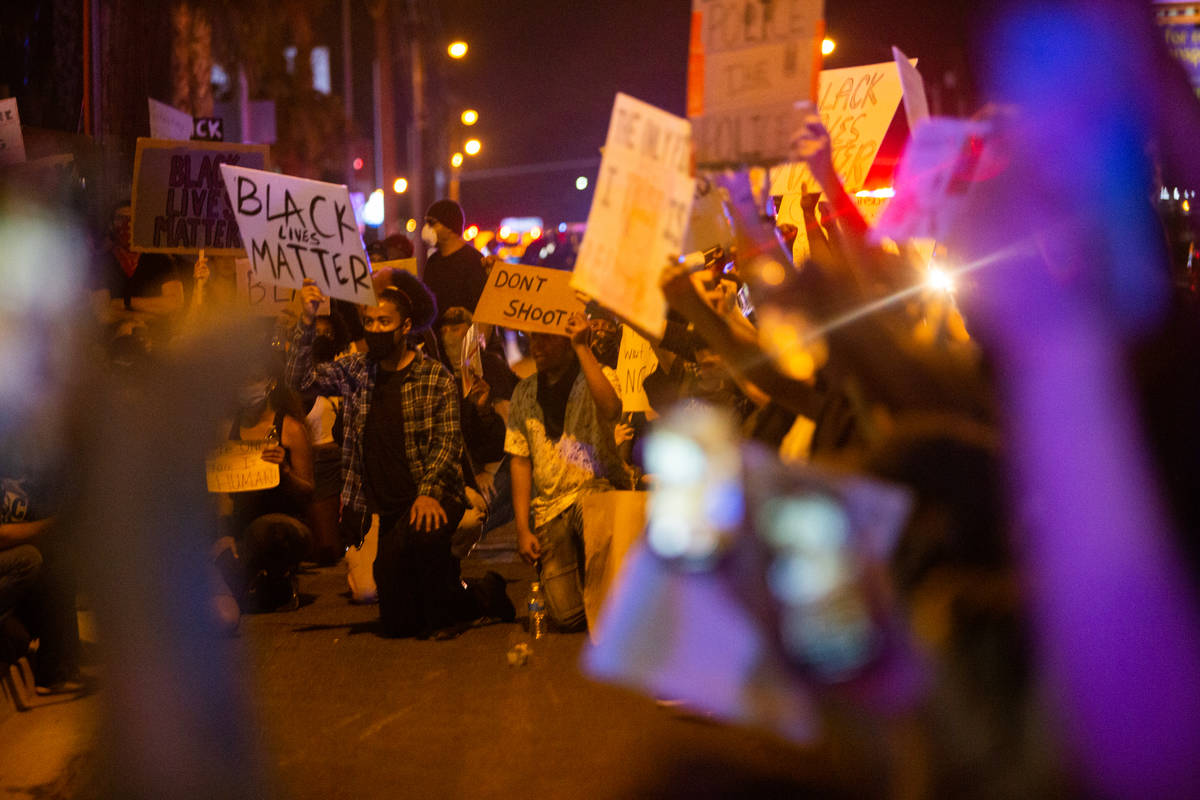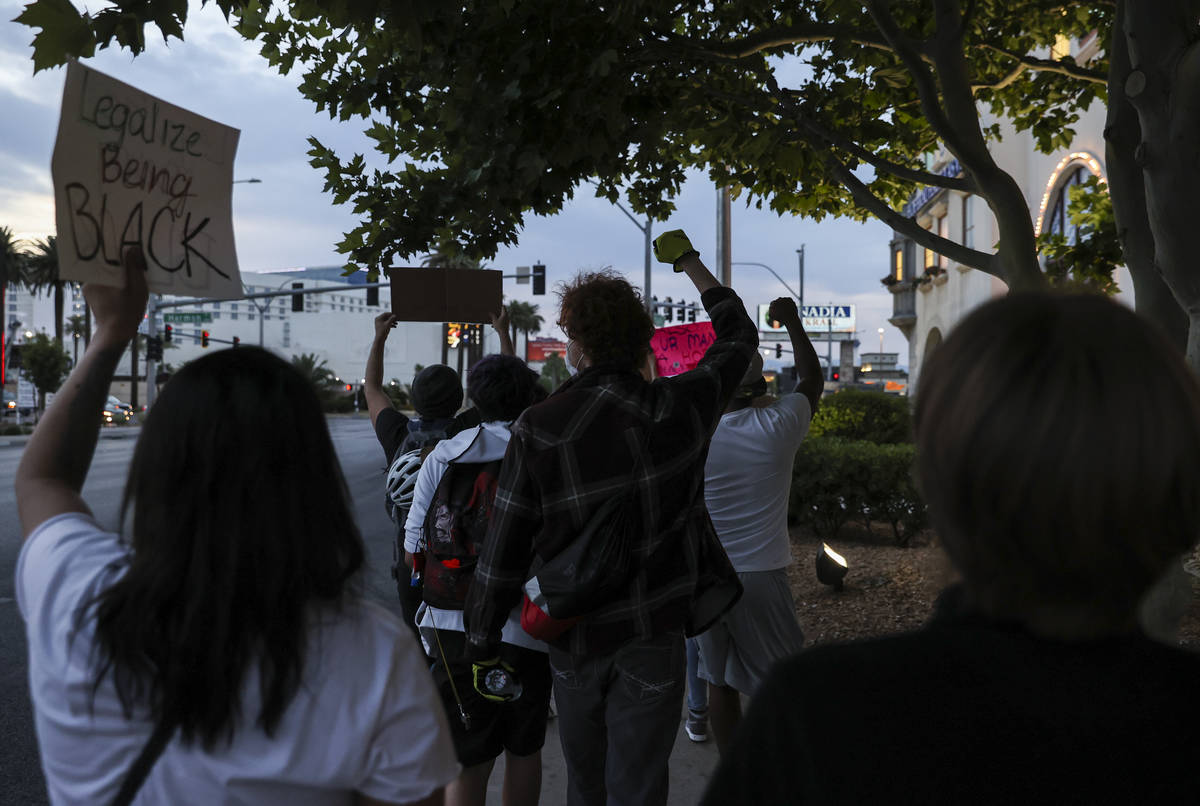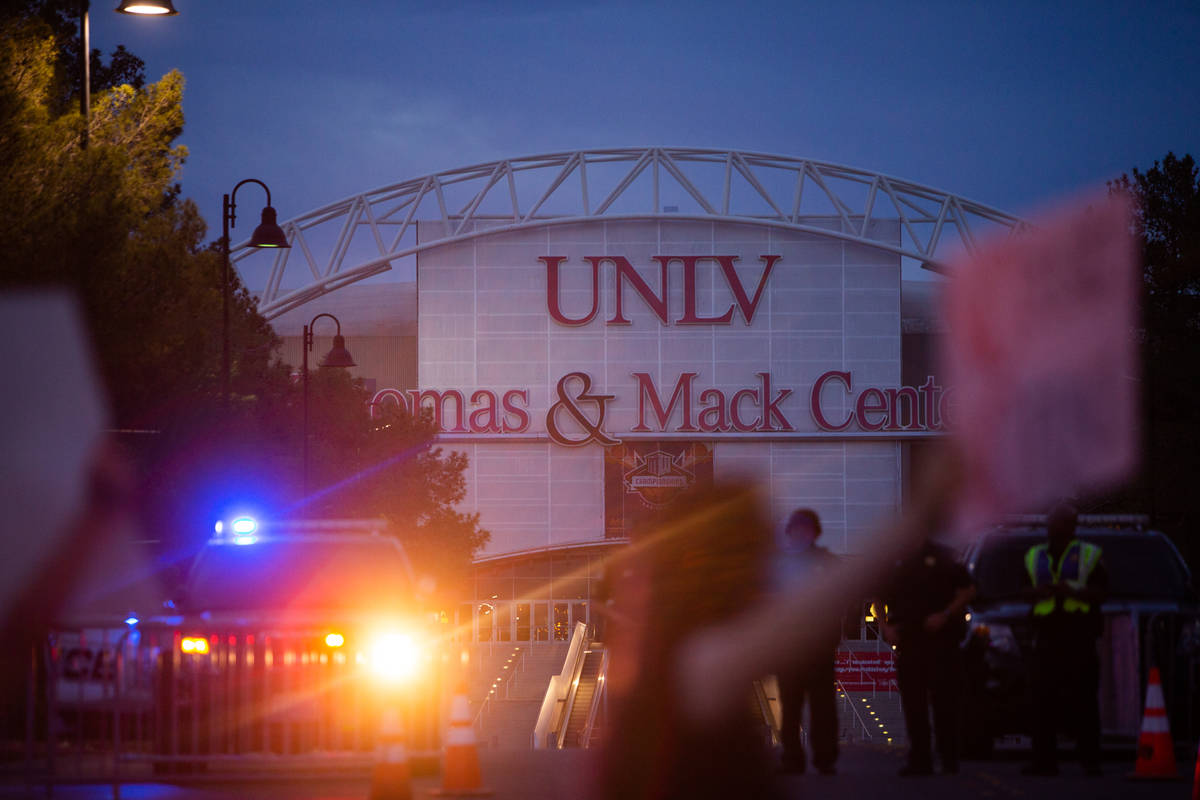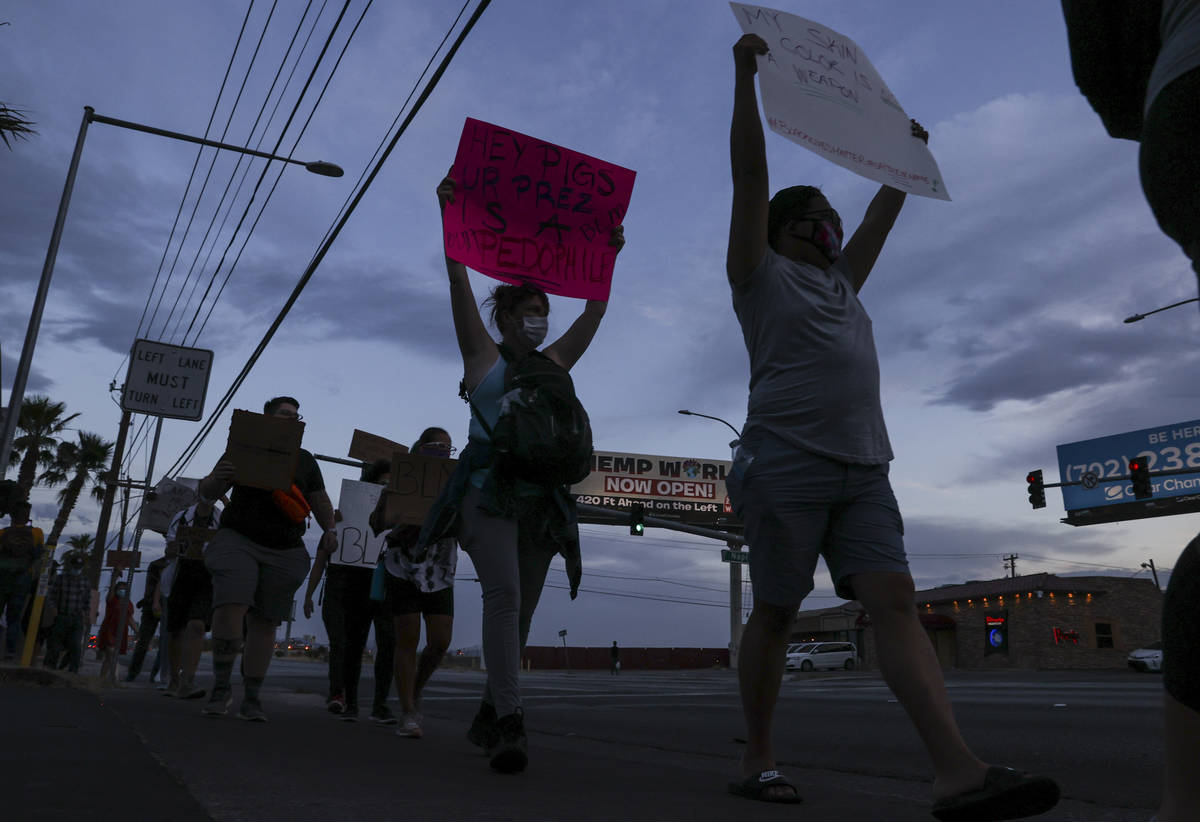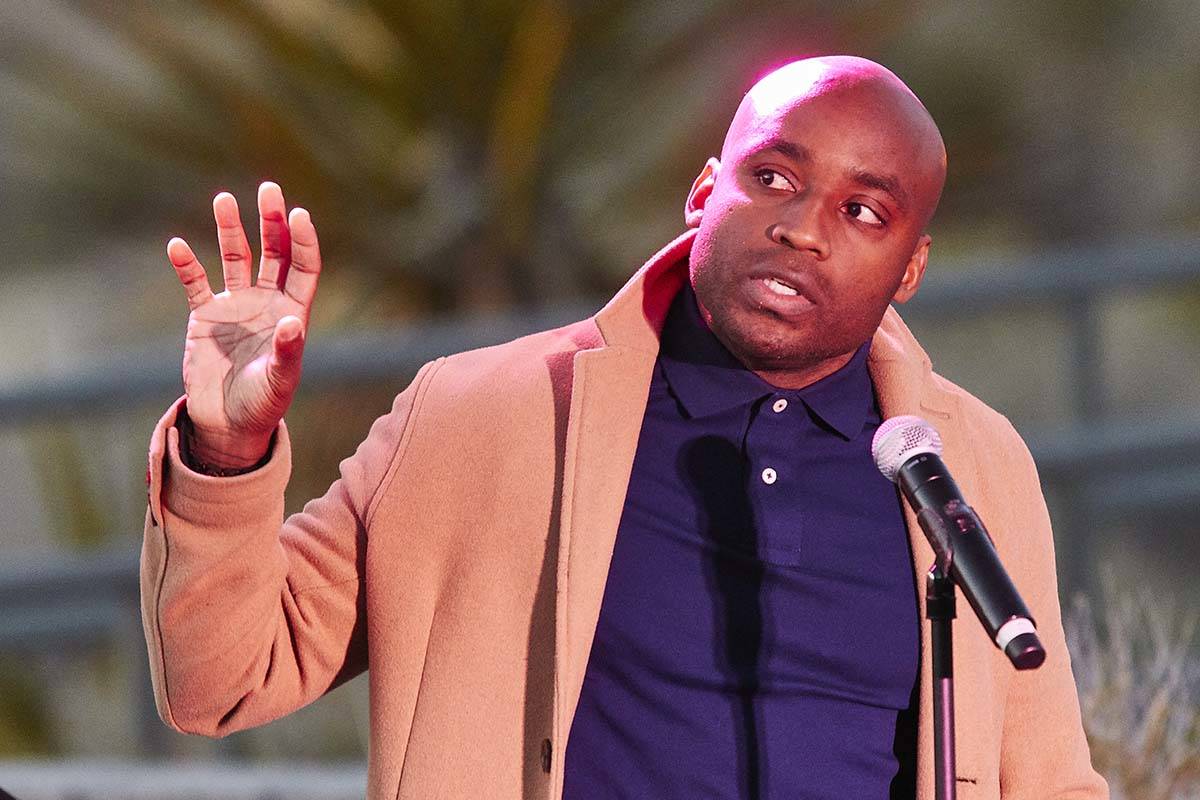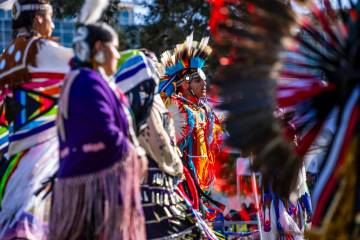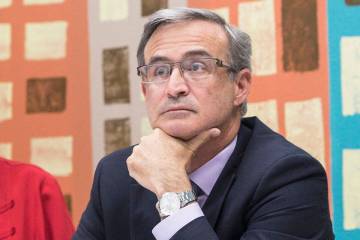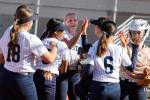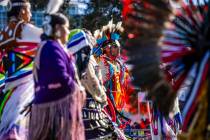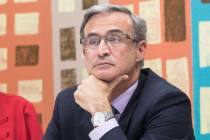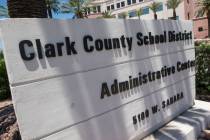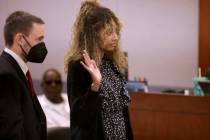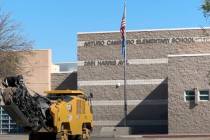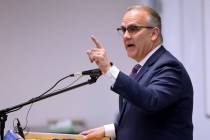UNLV’s Anti-Black Racism Task Force releases recommendations
A new UNLV task force has released recommendations for addressing safety, equity and inclusion among Black students and employees.
In early June, the university formed a 12-member Anti-Black Racism Task Force, which includes three subcommittees of faculty, students, and administrative faculty and staff.
The step came in the wake of the May 25 death of George Floyd, which sparked weeks of protests across the nation. A Minneapolis police officer — who was fired and now faces second-degree murder and second-degree manslaughter charges — kept his knee on Floyd’s neck for more than nine minutes, according to police bodycam video unsealed this week.
In a July 7 email to UNLV students, President Marta Meana and Chris Heavey — interim executive vice president and provost — wrote: “The last month or so has been profoundly painful for our university, our community, and our nation. The long history and recent string of killings of unarmed African Americans have finally brought about a moment of reckoning that needs to persist past the immediate reflection and protests. Black Lives Matter. Now and forever.”
UNLV prides itself on its diversity and must be at the forefront of efforts “to increase access and opportunity for individuals of color and others traditionally underrepresented in higher education,” they wrote. “We must support every member of our UNLV family and help everyone attain their educational goals and professional objectives.”
In the email, Meana and Heavey gave an overview of the task force recommendations, which they say they plan to implement.
They include denouncing racism and black racism during UNLV student orientations, creating a website for the task force, sponsoring an on-campus workshop to provide employees with specialized intercultural training, expanding mental health services for the Black community and implementing University Police Services changes.
On the academic side, recommendations include developing support initiatives for Black faculty, implementing a search advocate program that has been shown to result in hiring more faculty of color, hiring a cluster of scholars — once a hiring freeze is lifted —“whose research, teaching, and service is dedicated to combating racism and increasing social justice,” and expanding the university’s African American and African diaspora studies program.
UNLV is also considering the future of its mascot. The university removed a bronze statue of Hey Reb! from its campus in mid-June following outcry from student groups.
A task force member’s perspective
Javon Johnson — chairman of the task force’s faculty subcommittee — is assistant professor of African American studies, and director of African American and African diaspora studies.
Johnson, who has been at UNLV for three years, told the Review-Journal on Thursday that he had previously emailed the president and provost and expressed “my frustrations with how universities typically go about addressing racial issues.”
When the COVID-19 pandemic hit, university administrators turned to experts — both in education and health — “almost wholesale,” he said, for guidance.
But in a time of racial strife, UNLV “did not equally turn to the department that deals with racial issues” — the department of interdisciplinary, gender, and ethnic studies — and its faculty members, he added.
Johnson said he’s “a structural change person” and too often as it pertains to racism or discrimination, businesses and universities rely on sensitivity trainings.
“I have not come across much research that shows that this works,” he said, noting those types of trainings treat racism as an “individual engagement” with a focus on getting a few bad actors to change rather than on institutional change.
Johnson said UNLV needs to put more money into its African American and African diaspora studies programs and hire more faculty. And the university, he said, has had a problem with retaining Black faculty.
Johnson said he understands the university is facing budgetary issues spurred by the COVID-19 pandemic, but “for me, budgetary crises can’t be the response. We have to find solutions. Anti-black racism and antagonisms are killing black people at a high (rate) and we can’t turn a blind eye to that.”
Meana told the task force the university wants to take actionable steps, Johnson said, noting that immediate steps should focus on how UNLV responds when racist incidents occur. “We failed miserably in the past.”
Recent incidents include in October 2019 when a shooting threat directed toward Black students and Bernie Sanders supporters was found in a bathroom stall. Students protested after it took the university more than five days to send out a mass notification to campus. University officials said the threat was determined to be unsubstantiated.
In 2018, an anonymous sticky note with the message “kill the blacks” was found in UNLV’s Lied Library and there was also a report of someone making gun-pointing movements toward Black students.
What other colleges are doing
At Nevada State College in Henderson, school administrators also released a letter July 7 about steps the college is taking.
Those include recruiting more Black students and helping them graduate, increasing diversity among faculty and staff, launching a new academic program — Sankofa — next summer to support Black students, working to create a social justice lab on campus, and working to establish a Collegiate 100 chapter.
NSC’s diversity and inclusion task force has offered “a multitude of suggestions for additional things we can do,”according to the letter. “We will be looking at these recommendations, but we also want to increase our dialogue directly with African American students, faculty, and staff.”
The letter includes data, including that the number of Black first-time, first-year students has increased by 92 percent over the past five years. Retention rates have also improved.
“Although it is wonderful to see these numbers moving in the right direction due to many successful programs and the dedicated attention of faculty and staff, we recognize the cohort sizes are comparatively small and absolutely need to continue growing,” college administrators wrote in the letter. “The overall numbers are still nowhere near we would like them to be.”
The college has also pushed for more diversity on its leadership team, from no Black administrators in 2016 to 16 percent now.
The percentage of Black faculty, though, was at 6 percent in both 2013 and this year, according to the letter. And the percentage of Black administrative faculty and classified staff was 14 percent in 2013 — higher than 12 percent this year.
At the College of Southern Nevada, a couple of forums were held in June - “A Space to Breathe: A Conversation about Injustices Against Blacks in America” and “Standing in Solidarity: What’s Going On?”
President Federico Zaragoza also released a June 1 statement in response to Floyd’s death.
Contact Julie Wootton-Greener at jgreener@reviewjournal.com or 702-387-2921. Follow @julieswootton on Twitter.



